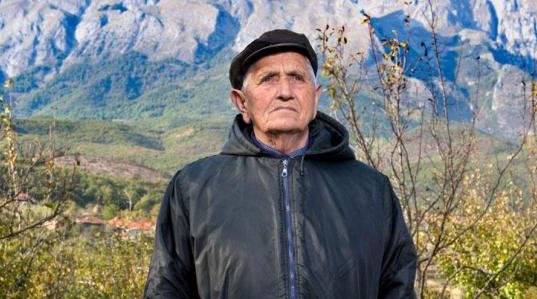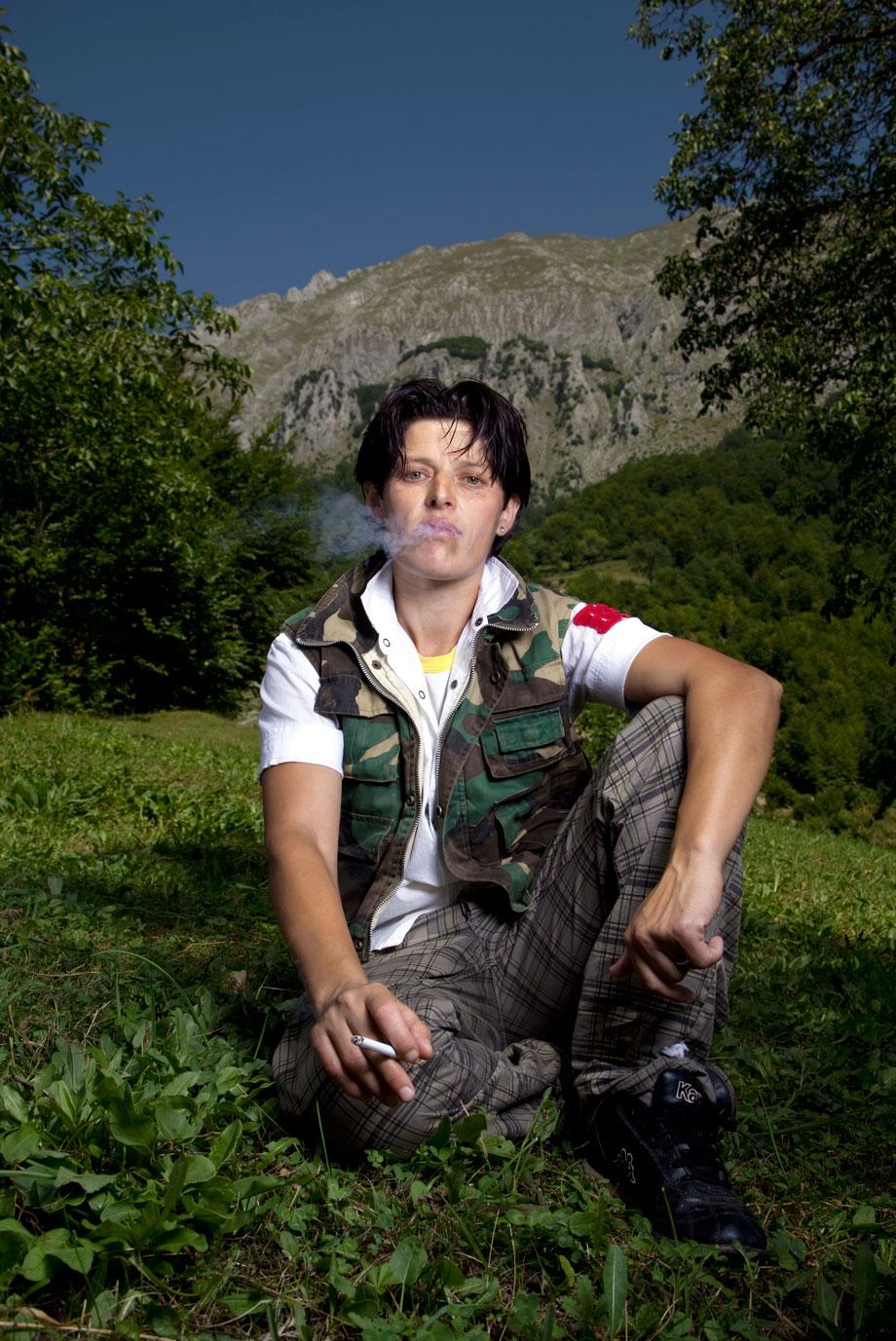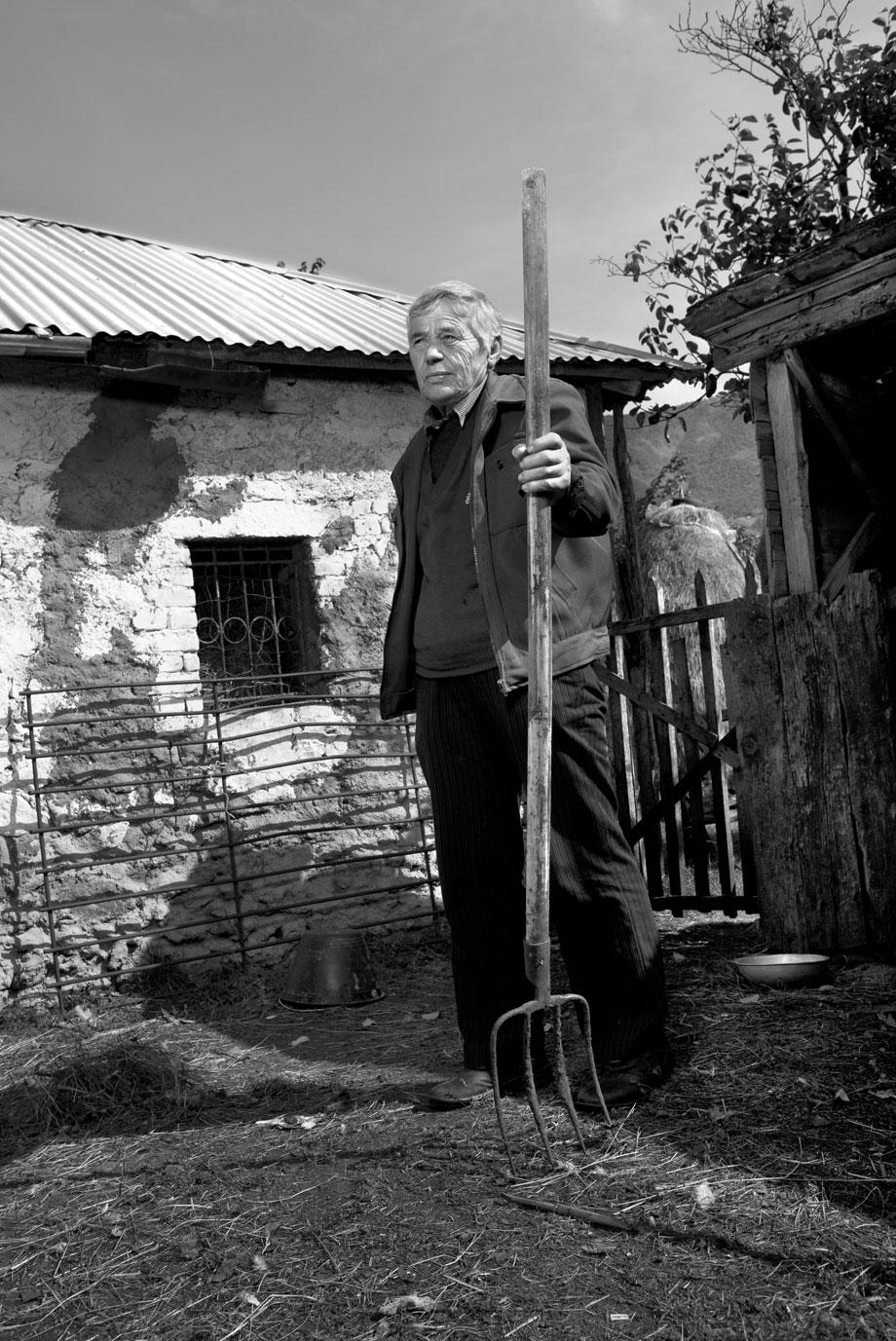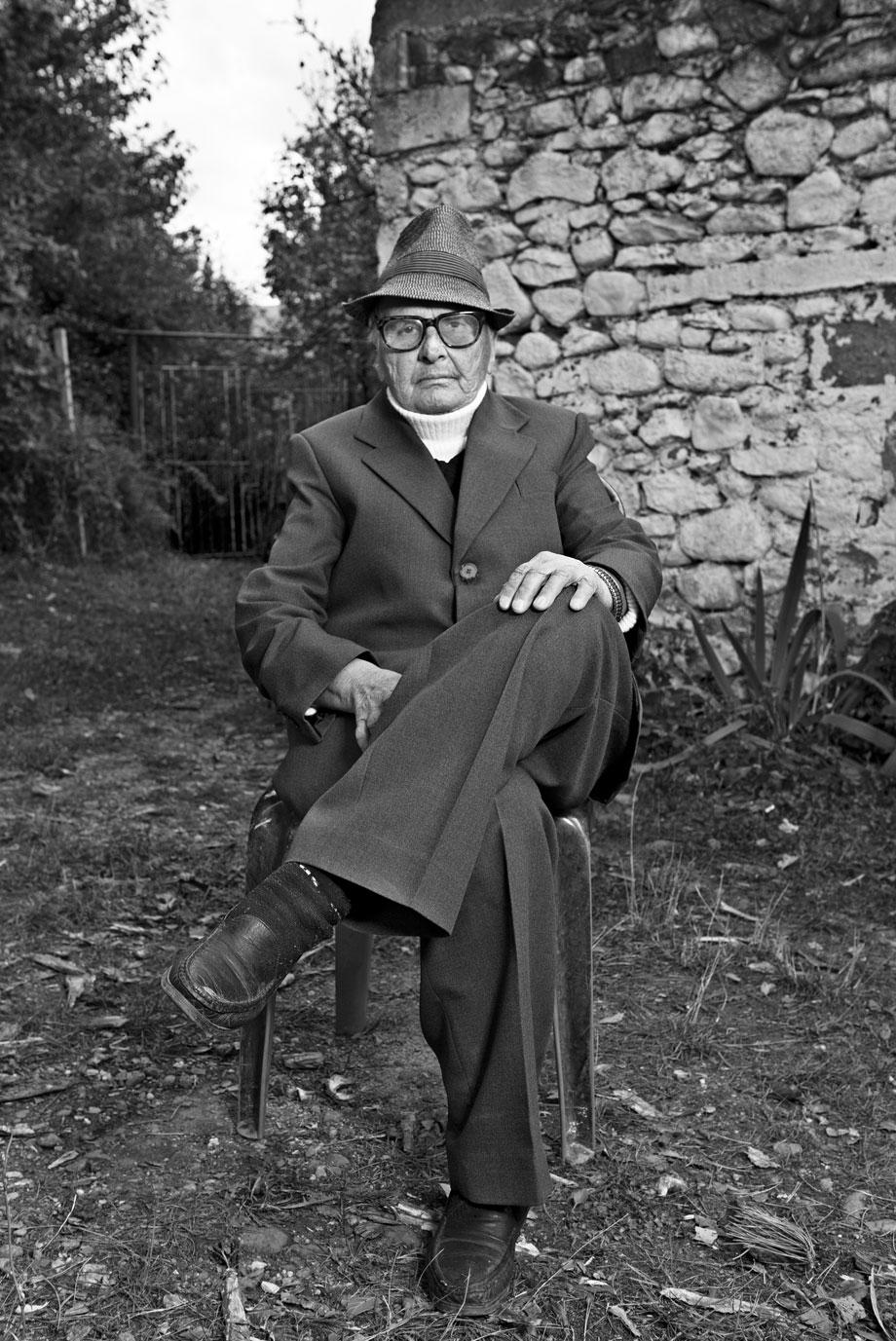Skhurtan, sworn virgin. (Jill Peters)
In an ongoing series of Albanian woman sworn to live as men, photographer Jill Peters has captured the fascination of a culture that doesn't always know how to handle sexuality or queerness.
Peters' photographs are striking portraits of a Northern Albanian culture that follows a tribal code of law called the Kanun, which subjugates females to their male family members and looks down on families without a patriarch. In families without a male head, women take on the dress and identities of men, and are treated as such.
The tradition of sworn virgins, known as burnesha, dates back to the 15th century, after blood feuds reduced the population of men and left families in a legal and social lurch.
They don't have children, but, according to Peters, neither do they have regrets.
Albanian culture treats women as less-than-equal, although their situation has improved and the population (and necessity) of sworn virgins has dwindled.
Peters is working on a documentary about the burnesha, partially funded on Kickstarter.
Peters explains her project on her website:
"Sworn Virgin" is the term given to a biological female in the Balkans who is chosen, usually at an early age, to take on the social identity of a man for life. As a tradition dating back hundreds of years, this was necessary in societies that lived within tribal clans, followed the Kanun, an archaic code of law, and maintained an oppressive rule over the female gender.The Kanun states that women are considered to be the property of their husbands. The freedom to vote, drive, conduct business, earn money, drink, smoke, swear, own a gun or wear pants was traditionally the exclusive province of men. Young girls were commonly forced into arranged marriages, often with much older men in distant villages.
As an alternative, becoming a Sworn Virgin, or 'burnesha" elevated a woman to the status of a man and granted her all the rights and privileges of the male population. In order to manifest the transition such a woman cut her hair, donned male clothing and sometimes even changed her name. Male gestures and swaggers were practiced until they became second nature. Most importantly of all, she took a vow of celibacy to remain chaste for life. She became a "he". This practice continues today but as modernization inches toward the small villages nestled in the Alps , this archaic tradition is increasingly seen as obsolete. Only a few aging Sworn Virgins remain. The number of new cases are scant and tend to be considered less authentic by younger generations.
As a photographer with an interest in subjects that innately speak to the diversity of the human experience I was fascinated with this story. I wanted to capture their portraits before they were gone forever. I traveled to the mountain villages of northern Albania and what I found was a small collection of extraordinary people. I learned that the Burnesha are well respected within their communities. They possess an indescribable amount of strength and pride, and value their family honor above all else. Their absolute transition is wholly accepted, posited and taken without question by the people among whom they live. But most surprising, is they have very few regrets for the great deal they have sacrificed.
Haki (Jill Peters)
![]()
Lumia (Jill Peters)
![]()
Haki (Jill Peters)
![]()
Xamille (Jill Peters)
![]()
Skhurtan (Jill Peters)
![]()
Mark (Jill Peters)
![]()
Lumia (Jill Peters)
![]()
Hajdari (Jill Peters)
![]()
Hajdari (Jill Peters)
![]()
















